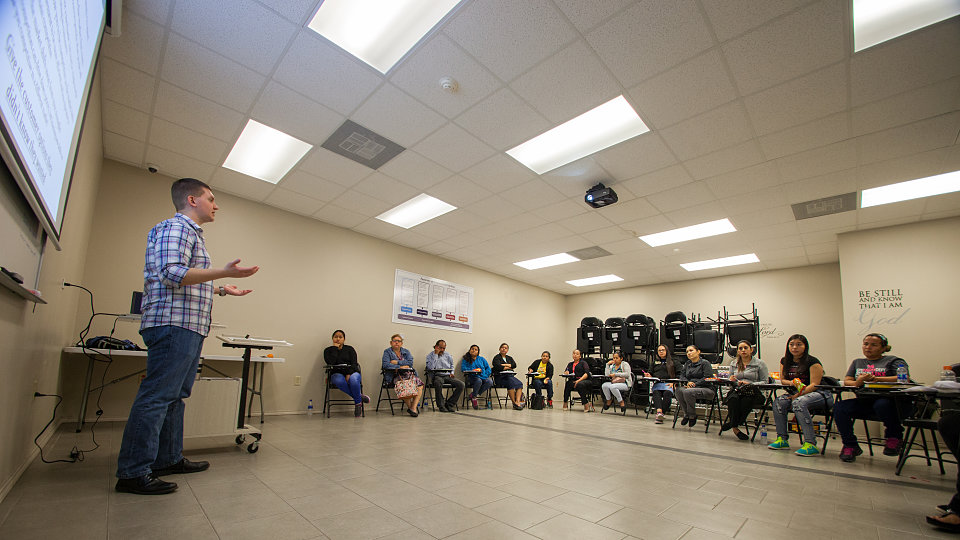A rocket scientist explains why he's involved with mission work
Jesus’ words are clear: Christians are to make disciples to the ends of the earth. And that can be accomplished in a variety of ways.
But how can we share the gospel and minister to people in such a way that fosters long-term transformation?
To find out, we visited with one of the smartest people we know: Nathan Clark. For the past three years, he’s taught business classes in Peñitas, Texas, for entrepreneurial families served by the local Buckner Family Hope Center. He also has served short-term in Ukraine and Haiti and ministers locally as well as a member of University Baptist Church in Clear Lake.
He’s also legitimately a rocket scientist. He holds a master’s degree in aerospace engineering from St. Louis University and is currently working for Boeing on the international space station.
Q: Why do you do mission work?
A: Aaron Glenn was hired on as the missions pastor at UBC a couple months after I started. He likes to find groups that are already on the ground and working long-term, looking at the When Helping Hurts idea of you want to be involved in long-term, sustained effort to really transform communities as opposed to helicopter in and doing brief stuff. So finding groups that are already there on the ground doing the hard work or relating to people and doing relational ministry, being able to support them on a short-term basis. That’s where my interest came in.
I can only do short-term stuff, like teaching business classes. That’s something I have experience in. I don’t have a business degree or any formal training, but I have been in the white-collar world almost 10 years now. A lot of this is basic problem solving and keeping good records of things. As an engineer, that’s in my wheelhouse. I can do a spreadsheet for anything. Look for trends, look for process improvements. That’s where I started.
I have a place where I can contribute that is valued by people on the receiving end.
Q: How do you know they value it?
A: We get feedback. Buckner leadership says it’s valuable and how great it is to have people do this. This is the kind of thing Buckner wants to do to help people be self-sufficient. That’s part of it, building people up with skills. They have skills; they just need a little encouragement to think through things and say, “Yeah, this is the next step.”
Q: You’ve said business isn’t your specialty, but you’ve learned lessons along the way. But you’ve picked up lessons you can share. Can you tell us more about that?
A: When you take college classes, you think I am an engineer. I am not one of those business people. I am an engineer. That’s what I do.
I’m teaching marketing here. It’s not a skill that requires professional training on how people like things and don’t like other things. How do you improve quality? How do you present things? How do you work on social media and the electronic realm? That’s just the world I live in. I’m just explaining that and showing this is how business is done and examining how it can help you.
Q: What does it mean to you that you’re making a long-term difference in people’s lives?
A: God gives everyone gifts. He gave me the gifts that I have that seem to be applicable to someone’s life. If I can share that, that’s my job. I can share that information with them. If it’s helpful to them, that’s great.
The world is how it is. People need money. To help people sustain themselves, that’s really the goal. We don’t want someone to be stuck in a cycle of poverty.
Q: Why go on missions?
A: We’re called to help, I believe. That is a constant through Scripture. This is one of the ways I do that.
To learn more about partnering with Buckner in mission work, go to www.buckner.org/missions.




Add a Comment